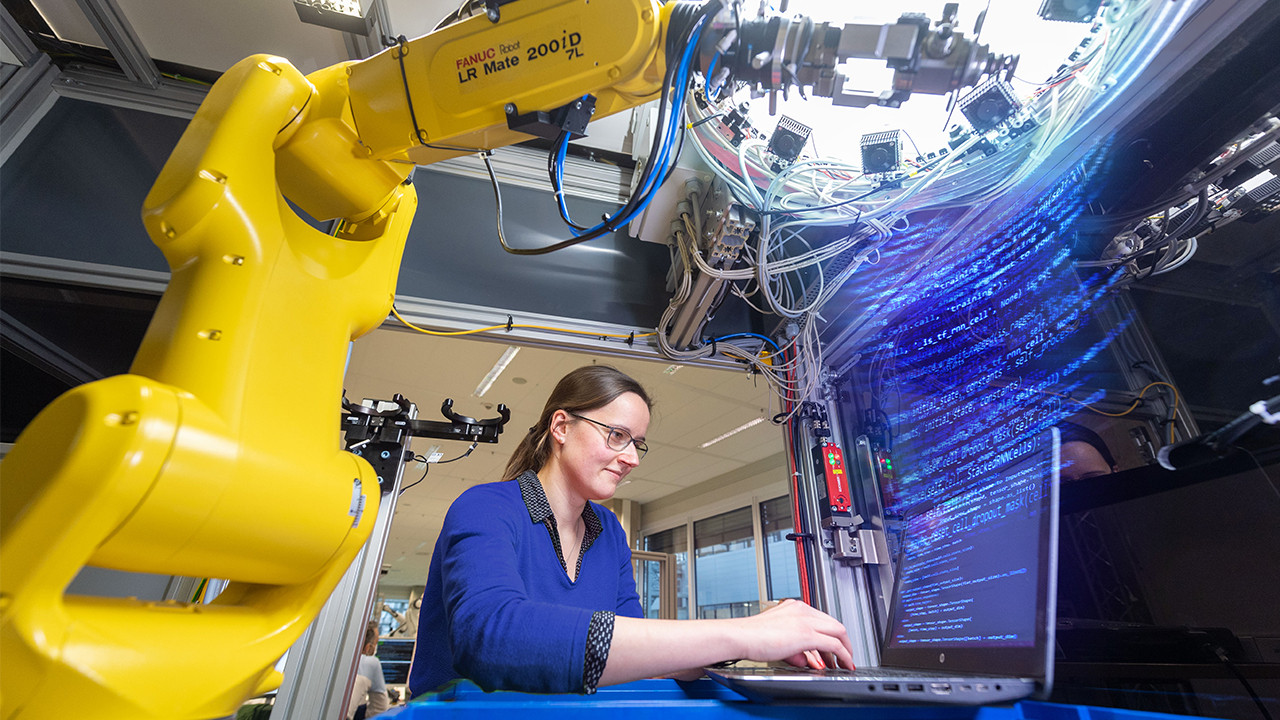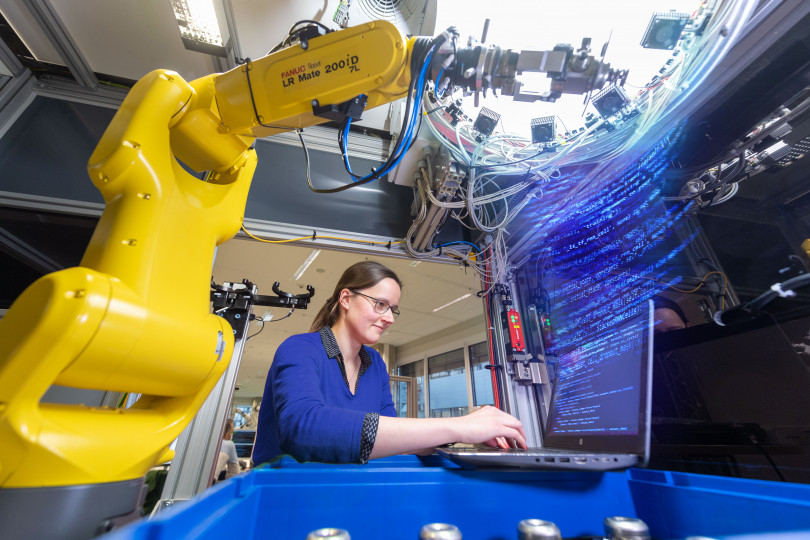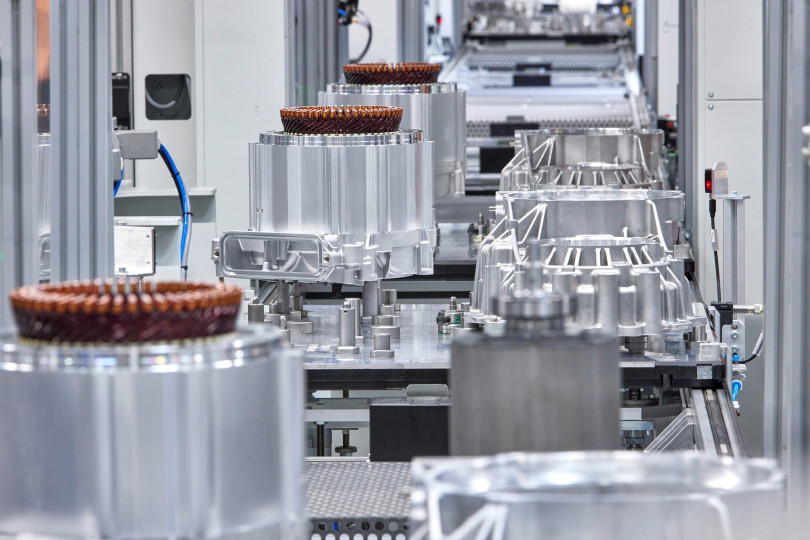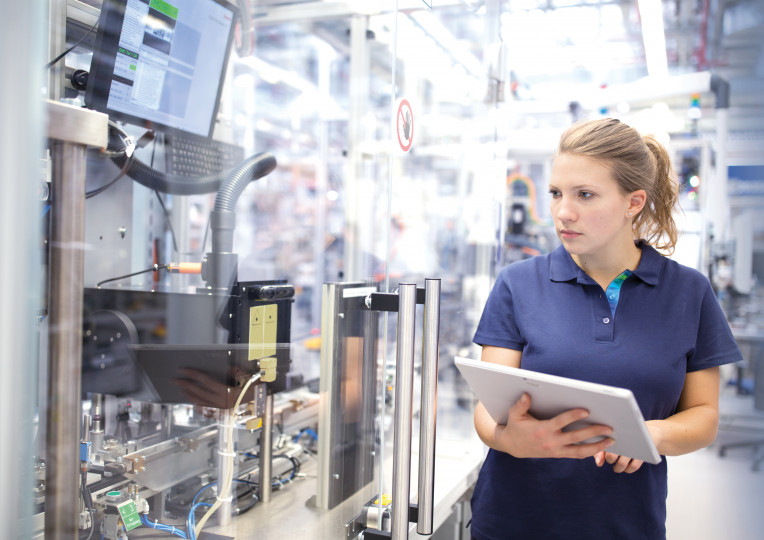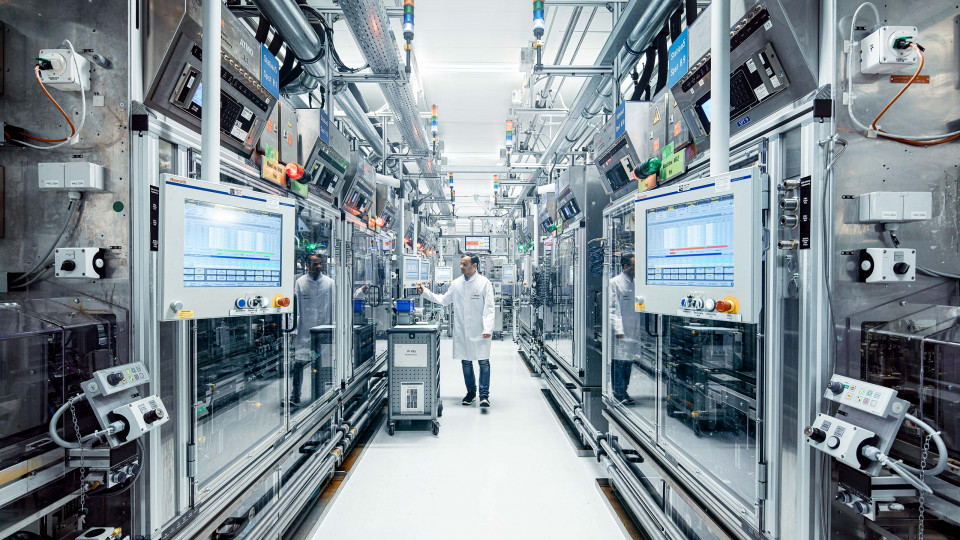Stuttgart, Germany – Bosch is piloting generative AI and foundation models in manufacturing. In initial projects in two Bosch plants in Germany, generative AI creates synthetic images in order to develop and scale AI solutions for optical inspection and optimize existing AI models. Bosch expects that this will reduce the time needed for planning, launching, and ramping up AI applications from the current six to twelve months to just a few weeks. Following successful piloting, this service for generating synthetic data is to be offered to all Bosch locations. “Nearly half of all Bosch plants are already using AI in their manufacturing operations. With the help of generative AI, we’re not only improving existing AI solutions, but we’re also laying the foundations for the optimum take-up of this future technology in our global manufacturing network,” says Stefan Hartung, chairman of the board of management of Robert Bosch GmbH. There are sound economic reasons for this move: depending on the size of the plant and type of production, artificial intelligence can be used to achieve productivity gains and six- to seven-figure cost savings – per year and plant. “AI has excellent potential for innovation and can make human work even more productive. As a manufacturing company, established factory outfitter, and Industry 4.0 trendsetter, Bosch aims to play a leading role in the development and application of industrial AI,” Hartung says.
AI in practice: Bosch projects deliver substantial benefit
Bosch pilot plants are already using AI in production scheduling, monitoring, and control. At the plant in Hildesheim, for example, AI-based data analysis has helped reduce cycle times during the production ramp-up of new lines by 15 percent. At the plant in Stuttgart-Feuerbach, new algorithms cut component-testing processes from three and a half to three minutes. “With generative AI, we’re now taking the next step in the evolution of artificial intelligence and advancing modern manufacturing to a new level,” says Tanja Rueckert, member of the Bosch board of management and chief digital officer. In this process, Bosch can build on its own expertise: the software models for generative AI were developed by Bosch research and are now being implemented in the field by Bosch factories. One plant uses an AI method of synthetically generated images to reliably inspect welds of copper wires in electric motor production, while another focuses on the quality assurance of high-pressure pumps.
AI boost: generative AI pushes the boundaries of feasibility
For years, the Feuerbach plant inspected fuel-injection components manually. The nature and complexity of the products, as well as differences in the structure of the production lines, meant that neither rule-based nor AI-assisted optical inspection was possible. The new approach is a scalable generative AI that recognizes variants of a product and error patterns and takes into account different arrangements and sequences in the production process. This is based on a foundation model developed by Bosch research and fed by large data sets from the Bosch manufacturing network. Synthetically generated data is used to refine the model and customize it for on-site applications. This is expected to make the AI capable of inspecting components independently, only submitting cases to visual inspectors where it is unsure. At the Hildesheim plant, synthetically generated images have already been successfully used for training purposes in the first standard systems in electric motor production. The human eye cannot distinguish the artificially generated images from real ones. The plant expects that project duration will be six months shorter with the new approach than with conventional methods, leading to annual productivity increases in the six-figure euro range. Bosch plans to expand the AI approach to other locations. “In our work to develop AI solutions, we’re unlocking the potential offered by the Bosch manufacturing network and its roughly 230 plants. And we are using new technologies. Generative AI helps to harmonize individualization and scaling – the technology gives us the best of both worlds,” Rueckert says.
AI status: widely used in Bosch plants
Many Bosch plants have one thing in common: not only are they AI pioneers, but they also focus consistently on Industry 4.0. “Bosch has been digitalizing and connecting its own plants and those of its customers for more than ten years.
Now we’re combining Industry 4.0 with artificial intelligence: connected manufacturing provides data and AI evaluates it,” Rueckert says. Errors are detected at an early stage, machine downtimes are kept to a minimum, scrap is reduced, and energy is applied in a focused way. “The use of AI will make factories more efficient, more productive, and more eco-friendly,” she adds. For example, Bosch research has developed an AI-based system that identifies anomalies and malfunctions in the manufacturing process and improves product quality. This software is now in use in around 50 Bosch plants, with over 2,000 production lines connected. Many Bosch plants also use artificial intelligence in the optical inspection of components. For example, over 20 plants use Machine Vision AI, a solution designed by Bosch’s special-purpose machinery unit that helps detect hard-to-identify features, such as scratches and chipping on surfaces and defects in weld seams.
Artificial intelligence at Bosch in Hungary as well
Bosch uses artificial intelligence in many areas at its Hungarian locations, the technology plays the most important role during production processes, for example in the data analysis required for production optimization, in the optical inspection of certain processes or in the planning of the maintenance of production line equipment.
Bosch is building complex higher education partnerships and an innovation ecosystem in Hungary, and as one of the elements of this, Hungary's first industrial department of artificial intelligence was established at the Faculty of Informatics of Eötvös Loránd University (ELTE). Besides, Bosch Rexroth and ELTE are working together in a unique collaboration on a robot that uses artificial intelligence to automate the unpacking of incoming components. This is currently still a manual process, which was captured using a camera as part of the project. After filtering, sorting and labelling, these images served as the basis for training the artificial intelligence model. The next step is for the specialists to work on ensuring that this solution works completely in the production environment beyond the laboratory environment.
Mónika Hack
+36 70 510 5516
The Bosch Group is a leading global supplier of technology and services. It employs roughly 421,000 associates worldwide (as of December 31, 2022). The company generated sales of 88.2 billion euros in 2022. Its operations are divided into four business sectors: Mobility Solutions, Industrial Technology, Consumer Goods, and Energy and Building Technology. As a leading IoT provider, Bosch offers innovative solutions for smart homes, Industry 4.0, and connected mobility. Bosch is pursuing a vision of mobility that is sustainable, safe, and exciting. It uses its expertise in sensor technology, software, and services, as well as its own IoT cloud, to offer its customers connected, cross-domain solutions from a single source. The Bosch Group’s strategic objective is to facilitate connected living with products and solutions that either contain artificial intelligence (AI) or have been developed or manufactured with its help. Bosch improves quality of life worldwide with products and services that are innovative and spark enthusiasm. In short, Bosch creates technology that is “Invented for life.” The Bosch Group comprises Robert Bosch GmbH and its roughly 470 subsidiary and regional companies in over 60 countries. Including sales and service partners, Bosch’s global manufacturing, engineering, and sales network covers nearly every country in the world. The basis for the company’s future growth is its innovative strength. At 136 locations across the globe, Bosch employs some 85,500 associates in research and development, of which nearly 44,000 are software engineers.
The company was set up in Stuttgart in 1886 by Robert Bosch (1861–1942) as “Workshop for Precision Mechanics and Electrical Engineering.” The special ownership structure of Robert Bosch GmbH guarantees the entrepreneurial freedom of the Bosch Group, making it possible for the company to plan over the long term and to undertake significant upfront investments in the safeguarding of its future. Ninety-four percent of the share capital of Robert Bosch GmbH is held by Robert Bosch Stiftung GmbH, a charitable foundation. The remaining shares are held by Robert Bosch GmbH and by a corporation owned by the Bosch family. The majority of voting rights are held by Robert Bosch Industrietreuhand KG, an industrial trust. The entrepreneurial ownership functions are carried out by the trust.
Additional information is available online at www.bosch.hu, iot.boschblog.hu, www.bosch.com, www.iot.bosch.com, www.bosch-press.com, www.twitter.com/BoschPresse

